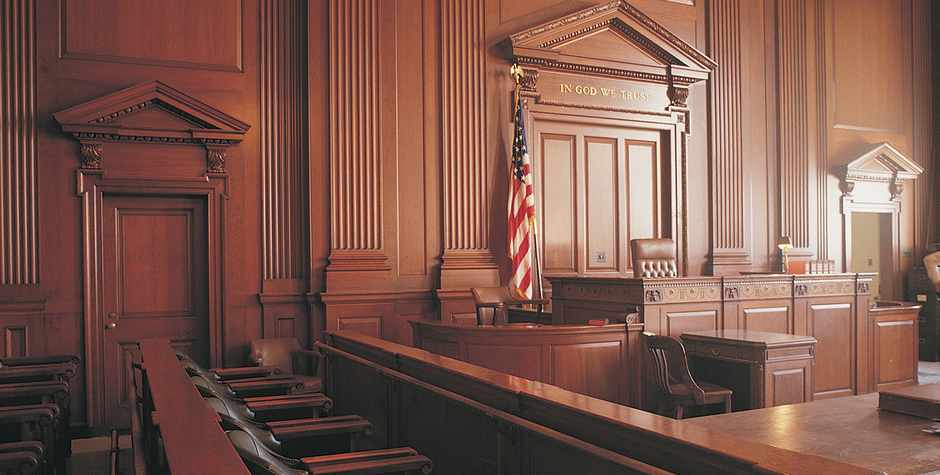Fourth Circuit Incorrectly Upholds Injunction Against National Security Executive Order
Yesterday, the United States Court of Appeals for the Fourth Circuit issued a decision upholding an injunction imposed against the President’s Executive Order that is designed to protect our nation from foreign terrorists. Ten judges (all placed on the court by Democratic Presidents) voted in favor of the injunction and three judges (all appointed by Republican Presidents) opposed the injunction.
The majority upheld the nationwide injunction preventing section 2(c) of the Executive Order from taking effect. That section temporarily paused for 90 days the entry into the United States of refugees and nationals of six unstable and/or terrorism-infested countries (Iran, Libya, Somalia, Sudan, Syria, and Yemen) that were designated as such by the Obama Administration. The clear purpose of section 2(c) was to allow time for needed improvements to the immigration and refugee screening processes with respect to these six countries.
The Fourth Circuit majority astonishingly held that the “Executive Order . . . in text speaks with vague words of national security, but in context drips with religious intolerance, animus, and discrimination.” It concluded, “We find that the reasonable observer would likely conclude that [the Executive Order’s] primary purpose is to exclude persons from the United States on the basis of their religious beliefs.”
As explained by the dissenting judges, in upholding the injunction, the majority violated Supreme Court case law by looking past the face of the Executive Order, which is neutral in terms of religion, and by wrongly considering campaign statements made by then-candidate and private citizen Donald Trump, statements the majority viewed as discriminatory toward Muslims.
The dissenting judges correctly concluded that the Executive Order on its face “is entirely without constitutional fault.” The Order was a valid exercise of the President’s authority “to suspend the entry of ‘any aliens’ or ‘any class of aliens’ and to prescribe ‘reasonable rules, regulations, and orders’ regarding entry, so long as the President finds that the aliens’ admission would be ‘detrimental to the interests of the United States.’”
The dissent pointed out that none of the facts or conditions underlying the issuance of the Executive Order had been challenged as being not true or legitimate. Those facts or conditions dealt with the six countries of concern either sponsoring terrorism or not helping the United States in its counterterrorism efforts.
Notably, the dissent pointed out that the plaintiffs had conceded during oral argument that if another presidential candidate had won the election in November 2016 and had issued the same Executive Order, they would have had no constitutional basis for challenging the Order.
Moreover, the dissent properly criticized the majority’s approach of using campaign rhetoric to override a facially constitutional Executive Order. Such an approach is fraught with problems as explained by the dissenting judges: “The danger of the majority’s new rule is that it will enable any court to justify its decision to strike down any executive action with which it disagrees. It need only find one statement that contradicts the stated reasons for a subsequent executive action and thereby pronounce that [the] reasons for the executive action are a pretext.”
The American Center for Law and Justice (“ACLJ”) filed an amicus curiae (“friend-of-the-court”) brief in the Fourth Circuit in support of the Executive Order. The brief was joined by over 205,000 members of the ACLJ’s Committee to Defend Our National Security from Terror. Our brief advanced the line of reasoning adopted by the dissenting judges in this case.
This case will now head to the United States Supreme Court for consideration. The ACLJ will file an amicus curiae brief in the Supreme Court supporting the Executive Order. As the dissenting judges noted, “The Supreme Court surely will shudder at the majority’s adoption of this new rule that has no limits or bounds—one that transforms the majority’s criticisms of a candidate’s various campaign statements into a constitutional violation.”
We are still waiting for a decision by the United States Court of Appeals for the Ninth Circuit in the appeal of the Hawaii federal trial court’s injunction of the same Executive Order.
The ACLJ will continue to keep you posted on these two important cases, along with our other efforts to defend the national security of this country.
Take action with us by signing on to our brief to the Supreme Court.
